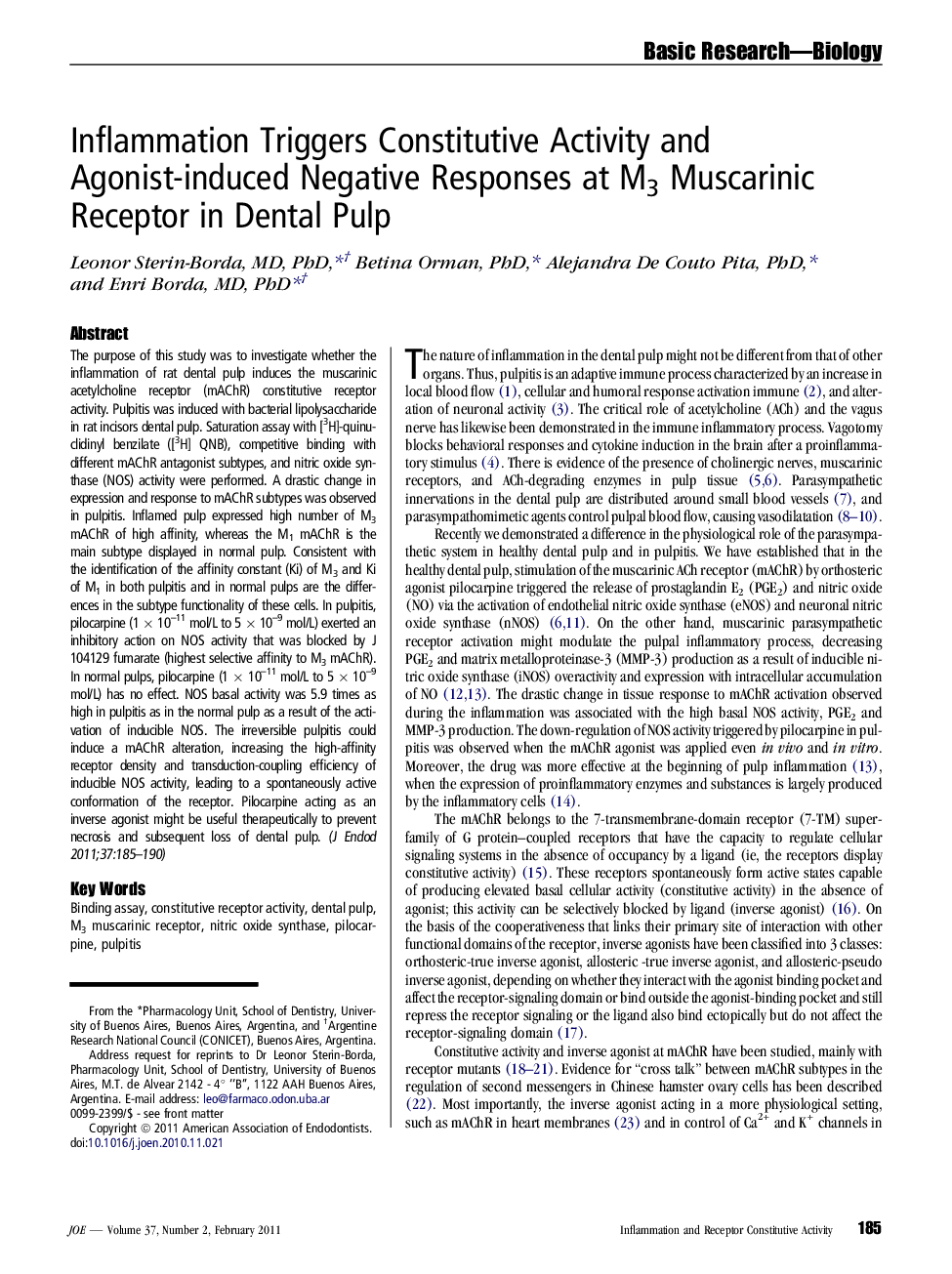| Article ID | Journal | Published Year | Pages | File Type |
|---|---|---|---|---|
| 6054049 | Journal of Endodontics | 2011 | 6 Pages |
Abstract
The purpose of this study was to investigate whether the inflammation of rat dental pulp induces the muscarinic acetylcholine receptor (mAChR) constitutive receptor activity. Pulpitis was induced with bacterial lipolysaccharide in rat incisors dental pulp. Saturation assay with [3H]-quinuclidinyl benzilate ([3H] QNB), competitive binding with different mAChR antagonist subtypes, and nitric oxide synthase (NOS) activity were performed. A drastic change in expression and response to mAChR subtypes was observed in pulpitis. Inflamed pulp expressed high number of M3 mAChR of high affinity, whereas the M1 mAChR is the main subtype displayed in normal pulp. Consistent with the identification of the affinity constant (Ki) of M3 and Ki of M1 in both pulpitis and in normal pulps are the differences in the subtype functionality of these cells. In pulpitis, pilocarpine (1 Ã 10â11 mol/L to 5 Ã 10â9 mol/L) exerted an inhibitory action on NOS activity that was blocked by J 104129 fumarate (highest selective affinity to M3 mAChR). In normal pulps, pilocarpine (1 Ã 10â11 mol/L to 5 Ã 10â9 mol/L) has no effect. NOS basal activity was 5.9 times as high in pulpitis as in the normal pulp as a result of the activation of inducible NOS. The irreversible pulpitis could induce a mAChR alteration, increasing the high-affinity receptor density and transduction-coupling efficiency of inducible NOS activity, leading to a spontaneously active conformation of the receptor. Pilocarpine acting as an inverse agonist might be useful therapeutically to prevent necrosis and subsequent loss of dental pulp.
Keywords
Related Topics
Health Sciences
Medicine and Dentistry
Dentistry, Oral Surgery and Medicine
Authors
Leonor MD, PhD, Betina PhD, Alejandra PhD, Enri MD, PhD,
